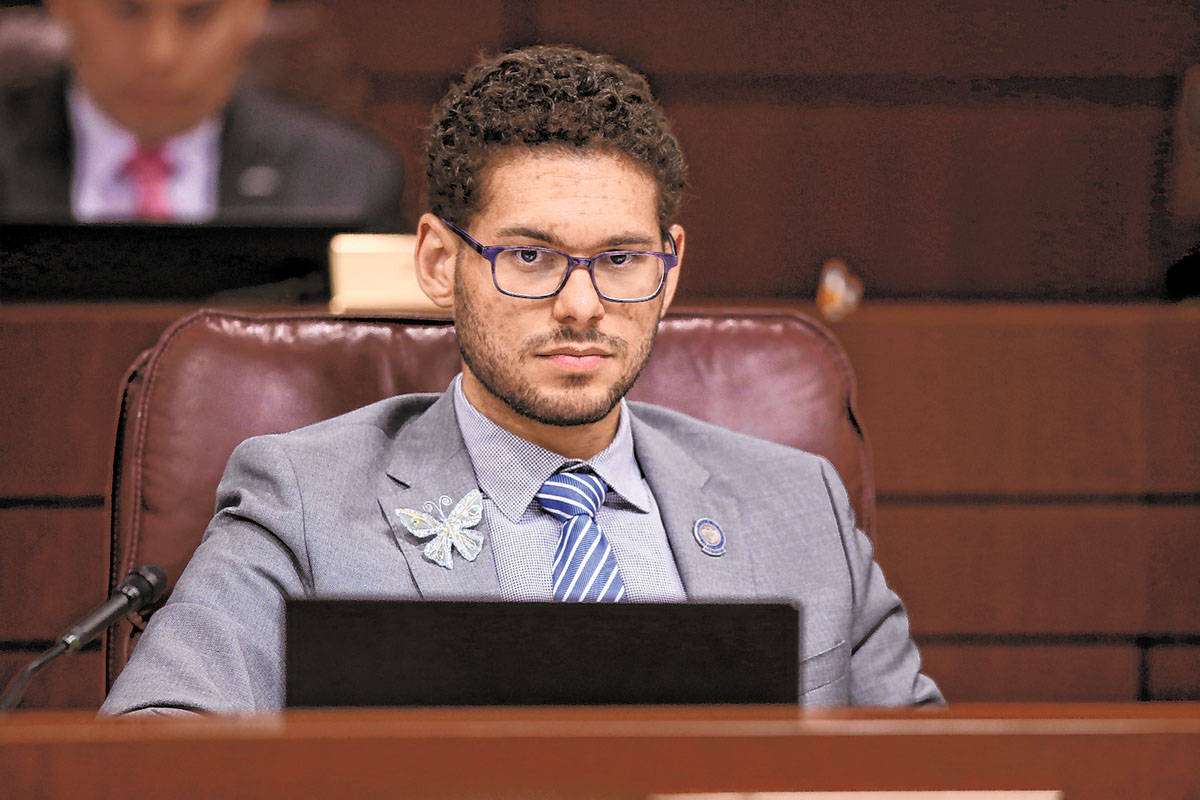Racist mascots, offensive names would be banned by bill
CARSON CITY — Schools would be required to do away with racially discriminatory mascots and logos under a bill heard in the Nevada Legislature on Tuesday.
Assembly Bill 88 would require school districts in the state to adopt policies that prohibit schools from using any name, logo, mascot or other type of identifier considered racially discriminatory or that contains discriminatory language or imagery.
It would also require the Nevada State Board on Geographic Names to recommend changes to any place in the state that has a name that includes derogatory terms.
“One of the legacies that periodically needs to be addressed is the language that we use as we look back and realize the terms that were once acceptable and commonplace are not any longer,” the bill’s sponsor, Assemblyman Howard Watts, D-Las Vegas, said during a hearing for the bill Tuesday.
The bill comes on the heels of a national reckoning on racial justice following the death of George Floyd last year, a movement that has led to professional sports franchises, such as the Washington Football Team, and schools dropping mascots and logos long considered racially insensitive and renewed focus on places whose names carry racially derogatory terms.
Racist names in Nevada
Watts said the focus of the bill is on the offensive depictions of Native Americans but that the language is broad to cover other instances of derogatory language. Watts noted there are 60 federally recognized places in the state with names that include racial slurs and derogatory terms, including Negrohead Peak, Dago Spring and Chinaman Diggings.
“These historic and symbolic vestiges stem from a place of hate and fear and have no place in a productive and prosperous future,” said Brian Melendez, chairman of the Statewide Nevada Native American Caucus while testifying in support of the bill.
“Our position is not simply a fickle sensitivity to subtle prejudice, but a call to rebrand what human dignity looks like in Nevada, for all people of color. And now, more than ever, we must confront racism where it sleeps,” Melendez added.
The bill would also require any school that wants to use a logo or other identifier that is associated with a federally recognized tribe to get permission from that tribe.
Watts said this would preserve tribal sovereignty and ensure that they are involved in the discussions going forward.
University takes action
The original draft of the bill would have also applied to colleges and universities in the state. But that section will be removed by an amendment, Watts said, since the Nevada System of Higher Education already has the authority to create such a policy and because the “problematic” Hey Reb! mascot at UNLV had been retired since Watts — a UNLV alumni himself — originally requested the bill.
“Having evolved from the confederate wolf Beauregard and evoking elements of the mountain man, Hey Reb! troubled many community members, including and especially Native students and alumni,” Watts said.
Under the original version of the bill, UNLV may have been been forced to drop the Rebels nickname as well. According to a fiscal note submitted by the Nevada System of Higher Education, that could cost the university $11.6 million to $16.9 million to redevelop its branding.
But with the amendment, that fiscal note can be removed, said Sabra Newby, UNLV vice president of community and government affairs.
Watts said he doesn’t have a problem with UNLV keeping the Rebels nickname “now that the problematic mascot is no longer associated with it.”
To Watts, the bill isn’t about “erasing history,” as some critics of the recent name changes have argued, but rather about “taking a deeper look at what we often take for granted and to educate ourselves about all of our communities and about our history.”
“Ultimately I believe we can find words and symbols that honor the stories of these places and institutions, while also honoring diverse cultures and communities that call Nevada home,” Watts said.
Contact Capital Bureau Chief Colton Lochhead at clochhead@reviewjournal.com. Follow @ColtonLochhead on Twitter.














